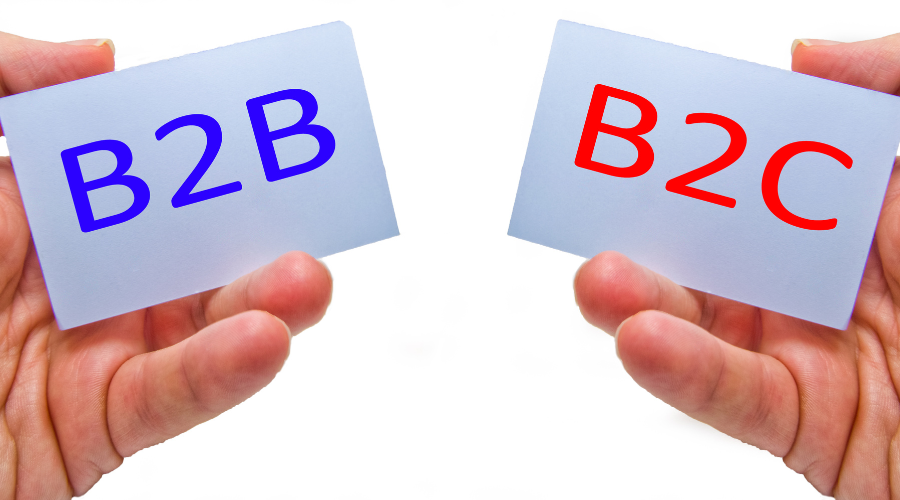B2B marketing may not always steal the spotlight, but it’s the silent force powering the gears of industry and growth. It is the driving force behind commerce, allowing companies to interact, cooperate, and grow.
We start by understanding the fundamentals before venturing further: what is B2B marketing, and who participates in it? We’ll also take a quick look forward to identifying the trends that will influence B2B marketing over the next 12 months.
So, let’s embark on a journey through the heart of B2B marketing, where businesses connect, opportunities flourish, and the future of commerce takes shape.
Contents
What is B2B Marketing?
B2B marketing, short for business-to-business marketing, represents a crucial facet of the commercial landscape. B2B marketing revolves around the exchange of goods and services between businesses, focusing on the promotion and sale of products and services to other companies and organizations.
At its core, B2B marketing serves as the driving force behind businesses seeking to generate demand from their fellow enterprises. It includes a wide range of methods and techniques used to build strong connections, nurture relationships, and eventually promote business-to-business exchanges.
Key characteristics of B2B marketing include its strategic alignment with the unique needs and goals of other businesses. Unlike B2C marketing, which caters to individual consumers, B2B marketing is designed to meet the demands of organizations looking to enhance their operations, acquire essential products and services, and optimize their business processes.
B2B marketing is essentially a channel via which companies market their products to business clients. It plays a pivotal role in supporting the growth, efficiency, and profitability of both the marketing business and the entities it serves.
Whether it involves the distribution of products, provision of services, or the establishment of collaborative partnerships, B2B marketing is a complex network of tactics that coordinates business goals to promote wealth and mutual success.
Who Uses B2B Marketing?

Any business that aspires to develop business relationships, improve brand awareness, and increase income and sales through involvement with other businesses will find value in B2B marketing. With so many industries taking part in, the B2B marketing landscape is vast.
Here’s a closer look at who engages in B2B marketing:
- Providers of Business Solutions: companies that offer software-as-a-service (SaaS) subscriptions, security solutions, technological tools, and a wide array of business-related services. They cater to the needs of other businesses looking to optimize their operations and improve efficiency.
- Office Supplies and Accessories Providers: businesses specializing in office supplies and accessories, ensuring the smooth functioning of other organizations. Their products range from stationery items to office equipment.
- Professional Services Firms: these include firms offering a range of professional services, such as legal, accounting, marketing, and consulting services. They often engage in B2B marketing to acquire clients from other businesses.
- Manufacturers and Producers: companies involved in the production of goods and services that serve as inputs for other businesses. Manufacturers and service providers often engage in B2B marketing to secure clients and distributors for their products.
- Resellers and Distributors: these entities purchase goods and services from manufacturers and suppliers and distribute them to businesses and consumers. This category includes wholesalers, brokers, and retailers.
- Government Entities: B2B marketing extends to government agencies at local, state, and national levels. These organizations often procure goods and services from businesses to support public services and infrastructure development.
- Non-Profit Organizations and Institutions: non-profit institutions like the American Red Cross, churches, and hospitals, as well as educational and research institutions, engage in B2B marketing as well. They acquire a diverse range of products and services to fulfill their missions and serve their constituencies.
- Businesses with Diverse Roles: B2B marketing campaigns target individuals within these organizations who wield authority or influence over purchasing decisions. This group encompasses a broad array of job titles and functions, spanning from entry-level employees to top-level executives within the C-suite.
The Differences Between B2B Marketing And B2C Marketing

Business-to-business (B2B) and business-to-consumer (B2C) marketing are two separate paradigms in the field of marketing, each with its own tactics, target markets, and communication techniques. The main distinction between them is evident in the titles themselves – it’s all about the audience.
Audience Focus
- B2B Marketing: B2B marketing is directed at businesses, with an emphasis on individuals who are responsible for making purchases on behalf of or for their organization. The focus is on the organization as the customer.
- B2C Marketing: B2C marketing, on the other hand, targets individual consumers making purchases for personal use. The individual is the customer, making decisions based on personal preferences and desires.
Purchase Motivation
- B2B Marketing: emphasizes logic and financial considerations, often requiring budget justification and a thorough assessment of return on investment (ROI).
- B2C Marketing: taps into emotions and feelings, connecting with consumers on a personal level to drive impulse purchases.
Purchase Purpose
- B2B Marketing: seeks long-term solutions that may entail extended sales cycles, contracts, and lasting relationships with businesses.
- B2C Marketing: focuses on short-term solutions to cater to immediate consumer needs.
Product/Service Complexity
- B2B Marketing: often deals with complex products or services designed for long-term investments, necessitating detailed information and extensive explanation.
- B2C Marketing: typically involves simple, everyday products and services for individual use.
Marketing Tone
- B2B Marketing: adopts a professional and straightforward tone to convey reliability and competence. B2B marketing relies on providing informative content, facts, figures, and an emphasis on how the product or service can benefit the business. It’s about rational, logical persuasion.
- B2C Marketing: exudes a friendly, upbeat, and engaging tone designed to evoke positive emotions. B2C marketing is often characterized by flashy and emotionally driven content. It aims to create experiences and emotions that encourage customers to buy.
Pricing Considerations
- B2B Marketing: pricing is often contingent on the organization’s budget constraints and long-term financial planning.
- B2C Marketing: generally focuses on lower price points to appeal to individual consumer budgets.
People Involved in the Process
- B2B Marketing: customers in B2B interactions often prefer direct communication with senior members of the company, such as executives and account managers.
- B2C Marketing: in B2C scenarios, customers primarily interact with members of marketing and sales teams, which may include customer service representatives and sales representatives.
In summary, B2B and B2C marketing represent two distinct worlds of marketing strategy, each tailored to the unique characteristics of its target audience. Understanding these fundamental differences is essential when crafting effective marketing campaigns and strategies that resonate with the specific needs, motivations, and behaviors of B2B and B2C customers.
6 Main B2B Marketing Channels

Many channels have emerged as the key to increasing sales, generating revenue, and building a strong online presence in the dynamic world of B2B marketing. These channels offer a range of opportunities to connect with potential clients and nurture meaningful business relationships.
1. Social Media Marketing
- Relevance: contrary to the misconception that social media is solely for B2C brands, B2B buyers and C-Suite executives also use social media in their decision-making processes.
- Challenges: connecting with business customers on social media can be more intricate due to longer sales cycles and a more complex chain of command.
2. Content Marketing
- Significance: content marketing plays a vital role in boosting brand awareness and establishing your business as a trusted industry authority.
- Methods: it encompasses the creation and distribution of valuable content, such as articles, videos, infographics, and case studies.
3. Email Marketing
- Engagement: email marketing is a powerful means of engagement and communication with both individual consumers and business customers.
- Conversion: it often serves as a vehicle for sharing brand content, converting subscribers into leads, and ultimately, customers.
4. Influencer Marketing
- Strategy: influencer marketing centers around using industry leaders and influencers to endorse a brand’s products or services.
- Credibility: influencers can lend credibility and authority to your offerings, making them more appealing to the target audience.
5. Account-Based Marketing
- Focus: account-based marketing involves targeted outreach to specific, high-value accounts within a business or organization.
- Customization: this approach tailors marketing efforts to address the unique needs and preferences of key accounts.
6. Blogging
- Role: blog posts enhance your website’s search visibility, making it easier for users to find your content on platforms like Google.
- Function: they provide valuable information, address industry-specific topics, and demonstrate your expertise.
These channels work together as a complete arsenal in the dynamic world of B2B marketing to engage new customers, establish brand recognition, and promote revenue growth. Using these channels strategically to navigate the complex world of business-to-business interactions is crucial for B2B marketing success.
How to Create a Successful B2B Marketing Strategy

Crafting a successful B2B marketing strategy is a meticulous process that requires careful planning, execution, and continuous refinement. To stand out in the competitive B2B landscape and capture the attention of potential clients, businesses need to follow a structured approach.
Here is a step-by-step guide to creating a thriving B2B marketing strategy:
Step 1: Have a Plan and Vision
- Start with a clear understanding of your brand’s positioning in the market and your desired market position.
- Define your marketing goals and objectives, ensuring they are specific, measurable, and aligned with your business’s overall mission and values.
Step 2: Research Your Market
- Conduct comprehensive research on the market, understanding market dynamics, customer behavior, and competitor activities.
- Gather data on market trends, consumer preferences, and industry shifts that can guide your marketing efforts.
Step 3: Define Your Audience
- Define your target audience meticulously. Create detailed buyer personas that encapsulate the demographics, preferences, and pain points of your ideal customers.
- Understand what motivates your customers to make a purchase and tailor your marketing strategies accordingly.
Step 4: Identify B2B Marketing Channels
- Determine the most effective channels for reaching your target audience. Consider both digital and physical channels, such as websites, email marketing, social media, SEO, and more.
- Your choice of channels should align with where your audience spends their time and how they prefer to consume information.
Step 5: Determine Your Main Selling Points
- Highlight your core selling points that set your products or services apart from the competition.
- Showcase benefits such as product quality, ROI, and exceptional customer service that matter most to your B2B customers.
Step 6: Create Content and Run Campaigns
- Develop content tailored to your audience and chosen marketing channels. Content can include visuals, videos, blog posts, and other formats.
- Keep the preferences and behaviors of your target audience in mind when crafting content. Short, visual content may be more suitable for social media, while longer, text-heavy content might work better for blog posts.
Step 7: Track the Data and Improve
- Continuously monitor and analyze the performance of your marketing campaigns. Pay close attention to metrics and key performance indicators (KPIs) specific to your goals.
- Identify which channels are delivering the best results and which need adjustments. Use data to refine and optimize your strategies to drive better outcomes.
A successful B2B marketing strategy is an evolving and data-driven process. By staying vigilant about performance metrics and actively seeking to understand your audience’s needs and behaviors, you can fine-tune your approach over time and adapt to the changing landscape of the B2B marketplace.
7 B2B Marketing Trends in 2023

A number of important trends are emerging, reshaping the dynamic world of B2B marketing. Here are some of the prominent B2B marketing trends for 2023:
1. Personalization as a Brand Voice
- Why It Matters: the importance of cultivating a unique brand voice has grown significantly. Personalizing your brand allows you to stand out in a crowded market.
- Actionable Insights: when personalizing your brand, it’s crucial to align your voice with your target audience’s preferences and values. Reflect on their voice to create a strong connection and resonance.
2. Customer-Centric Content
- Why It Matters: putting customers at the forefront when creating content is imperative. It helps customers see your product or service as the solution they’ve been seeking.
- Actionable Insights: craft content that mirrors your target audience’s language and preferences. Incorporate trending keywords to enhance SEO and boost your website’s search engine ranking.
3. The Rise of First-Party Cookies
- Why It Matters: a seismic shift in customer data collection is underway. Leading web browsers are phasing out third-party tracking cookies, impacting digital marketing strategies.
- Actionable Insights: businesses should adapt by embracing first-party cookies for data collection and personalization. It’s vital to explore alternative methods for data gathering while respecting user privacy.
4. AI-Driven Personalization
- Why It Matters: AI is transforming how marketing teams deliver personalized engagement at scale. It enables intelligent data analysis and tailored messaging for individual buyers.
- Actionable Insights: leverage AI to gain insights into each buyer’s preferences and customize marketing messages and offers. This is particularly beneficial for B2B marketing teams employing Account-Based Marketing strategies.
5. Marketing and IT Alignment
- Why It Matters: marketing and IT alignment is more critical than ever. Digital buyer experiences are the norm, and both functions need to work collaboratively to achieve their goals.
- Actionable Insights: Chief Marketing Officers and Chief Information Officers should align their teams and priorities. A cohesive marketing and IT strategy ensures a seamless digital experience and effective data management.
6. Differentiation through Engagement
- Why It Matters: the competition for customer attention on social media is intense. Businesses must find ways to stand out and engage their target audience effectively.
- Actionable Insights: identify what sets your business apart and develop creative strategies for better customer engagement. Embrace innovative tactics to captivate and convert prospects on social platforms.
7. Evolution of B2B Advertising
- Why It Matters: B2B advertising is in a constant state of evolution. From traditional methods like direct mail to modern digital approaches, the landscape is continually transforming.
- Actionable Insights: stay up to date with new products and technologies reshaping the B2B marketing landscape. Embrace innovation, adapt to emerging platforms, and explore smart data, search, and social media marketing to remain competitive.
10 B2B Marketing Best Practices

Businesses that want to succeed in the field of B2B marketing must adopt best practices that fit the specific dynamics of the B2B market. Here are some essential ones to consider:
1. Develop a Strategic Plan
- Why It Matters: effective marketing begins with a well-defined strategy. Set clear goals for each campaign and thoroughly research your target audience.
- Actionable Insights: create a marketing plan that outlines your objectives and set KPIs to measure success. Regularly review your plan against KPIs and be open to adjustments.
2. Harness the Power of Data
- Why It Matters: quality, GDPR-compliant data is essential for account-based marketing. It ensures that you have the right contact information and facilitates personalized, effective campaigns.
- Actionable Insights: utilize data-driven insights and intent data to reach prospects who are actively looking to make a purchase. Make informed decisions, reduce costs, and improve customer targeting.
3. Create Visual Content
- Why It Matters: visual content, such as videos, GIFs, infographics, and images, enhances engagement and prevents content from becoming monotonous.
- Actionable Insights: incorporate visual assets into your marketing efforts to captivate and engage your B2B audience, strengthening your brand image in the process.
4. Establish a Consistent Brand Identity
- Why It Matters: a cohesive and transparent brand identity builds trust and loyalty with customers.
- Actionable Insights: define your brand persona, values, tone of voice, and visual identity. Maintain brand consistency to enhance your position in the B2B market. Integrate brand campaigns into various touchpoints, even email signatures.
5. Focus on Addressing Pain Points
- Why It Matters: understand your customers’ challenges and offer solutions to their problems to add value to their lives.
- Actionable Insights: shift from sales-focused to problem-solving marketing. Provide answers to ongoing frustrations and position your product or service as the ideal solution, fostering long-term customer relationships.
6. Embrace Experimentation
- Why It Matters: the perfect B2B marketing strategy doesn’t have a one-size-fits-all formula. Experimentation is key to finding what works best for your business.
- Actionable Insights: encourage an experimental, data-driven mindset in your team. Conduct A/B testing and experiments to optimize your strategies continually. Stay informed about the latest trends and innovations in the ever-evolving B2B marketing landscape.
7. Be Human
- Why It Matters: B2B marketing still targets individuals within businesses, and human connection is vital.
- Actionable Insights: understand that B2B buyers are influenced by emotional and cognitive motivations. Craft content and messaging that resonates on a human level and conveys authenticity.
8. Target with Precision and Volume
- Why It Matters: B2B decisions often involve multiple stakeholders. Effective targeting should encompass all potential influencers.
- Actionable Insights: identify and target all stakeholders who can influence buying decisions. Leverage advanced tools and automation to expand your audience and maintain brand recognition.
9. Thought Leadership Impact
- Why It Matters: thought leadership content influences senior-level decision-makers and adds value to your brand.
- Actionable Insights: invest in thought leadership content that articulates a clear vision of the future. Use this content to build credibility and trust with potential customers.
10. Keep Context in Mind
- Why It Matters: personalization and relevance are essential for effective marketing. Contextual alignment with the audience’s environment enhances engagement.
- Actionable Insights: tailor content to the platform and format that best suits your target audience. Consider the viewer’s mindset and surroundings when crafting your message to maximize impact.
Final Thoughts
B2B marketing is a constantly changing and vital aspect of business success. With technology advancing rapidly and buyer behavior shifting, B2B marketers face both challenges and opportunities.
As we’ve discussed in this post, effective B2B marketing involves understanding your target audience, creating valuable content, choosing the right channels, and adapting to industry trends. Building strong relationships, fostering trust, and providing tailored solutions are also essential.
B2B marketing is an ongoing learning process. It’s not one-size-fits-all. Success in this field comes from delivering value, staying adaptable, and always prioritizing the customer.
Embrace the principles we’ve covered, stay informed about emerging trends, and be ready to adapt when needed. You’re on the right path to navigate the complex world of B2B marketing. Best of luck on your journey!

